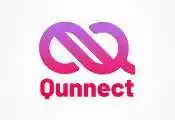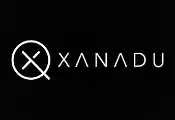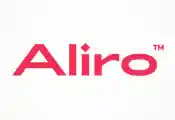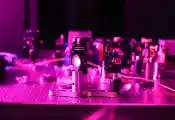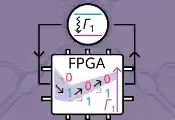Q-CTRL Overcomes GPS-Denial With Quantum Sensing, Achieves Quantum Advantage
Sydney, Australia, April 14, 2025 -- Q-CTRL, the global leader in quantum infrastructure software, announced successful field trials of a new generation of quantum-assured navigation solutions validated to outperform comparable conventional alternatives in challenging real-world settings. This marks the first achievement of commercial quantum advantage for any of the recently posed applications of quantum technology, cementing Q-CTRL’s role as the dominant leader in the quantum sector.
Today, almost all navigation in vehicles, from airliners to passenger cars, relies on the Global Positioning System (GPS). But amidst growing international conflict, GPS denial is becoming a weapon of both traditional warfare and nontraditional economic sabotage; an outage is estimated to cost $1 billion per day, over 1,000 flights per day are now disrupted by GPS jamming incidents, and the adoption of autonomous systems is becoming challenged by the unreliability of GPS.
Meanwhile, existing GPS backups face major shortcomings that have made new solutions for GPS-free navigation a strategic technology of the highest importance.
Q-CTRL has produced a new generation of quantum-assured navigation systems, Ironstone Opal, that delivers GPS-like positioning, is completely passive and undetectable, and cannot be jammed or spoofed. It solves the most pressing navigation challenges in the defense and civilian domains, enabling new missions, streamlining transport operations, and powering autonomous systems.
In a world-first demonstration, Q-CTRL conducted real-world ground and airborne trials showing its quantum-assured navigation solution enabled successful GPS-free navigation, outperforming a high-end conventional GPS alternative by up to 50x. These tests deliver true commercial and strategic quantum advantage in navigation, an elusive goal across the entire quantum industry.
The Q-CTRL quantum-assured navigation system uses quantum sensors to detect tiny, otherwise imperceptible signals arising from Earth’s structure that serve as magnetic “landmarks” for navigation -- only quantum sensors provide the sensitivity and stability needed to continuously “see” these landmarks from a moving vehicle.
“We achieved an accuracy in some trials comparable to a sharpshooter hitting a bullseye from 1,000 yards away,” said Q-CTRL CEO and Founder Michael J. Biercuk. “But because our quantum-assured navigation system allows a vehicle to position itself accurately irrespective of how far it’s travelled, by analogy that sharpshooter can hit the same bullseye no matter how far away they move from the target.”
“Unlike quantum supremacy [in quantum computing], the technology is truly innovative and meets a growing market need in aerospace, defense, and autonomous cars,” said Jean-Francois Bobier, Partner & Vice President, Deep Tech, at the Boston Consulting Group. Bobier noted the BCG estimate of quantum sensing becoming a $3bn industry by 2030 and added, “Q-CTRL is paving the way to unlocking this potential with a proven quantum advantage.”
Q-CTRL provides a new solution from top to bottom, built around the concept of “software ruggedized hardware.” This validated concept uses proprietary AI-powered quantum control software to shield the delicate quantum sensors against interference encountered in the real world and allows the systems to be miniaturized by trading hardware for software to enable deployment on nearly any vehicle.
“At Q-CTRL, we’re thrilled to be the global pioneer in taking quantum sensing from research to the field, being the first to enable real capabilities that have previously been little more than a dream,” said Biercuk from Q-CTRL. “This is our first major system release and we’re excited that there is much more to come as we introduce new quantum-assured navigation technologies tailored to other commercial and defense platforms.”
Q-CTRL’s quantum magnetic navigation system is small enough to fit on small fixed-wing drones or autonomous cars, and powerful enough to enable navigation in passenger airliners. Nothing in the industry approaches the combination of performance, stealth, and SWaP (size, weight, and power), making this a truly unique technology. The company is working with government agencies, including the Australian Department of Defence, the UK Royal Navy, and the US Department of Defense, to deliver new quantum-sensing technologies for defense platforms. In addition, Q-CTRL is working with Airbus on quantum navigation solutions for commercial aviation.

